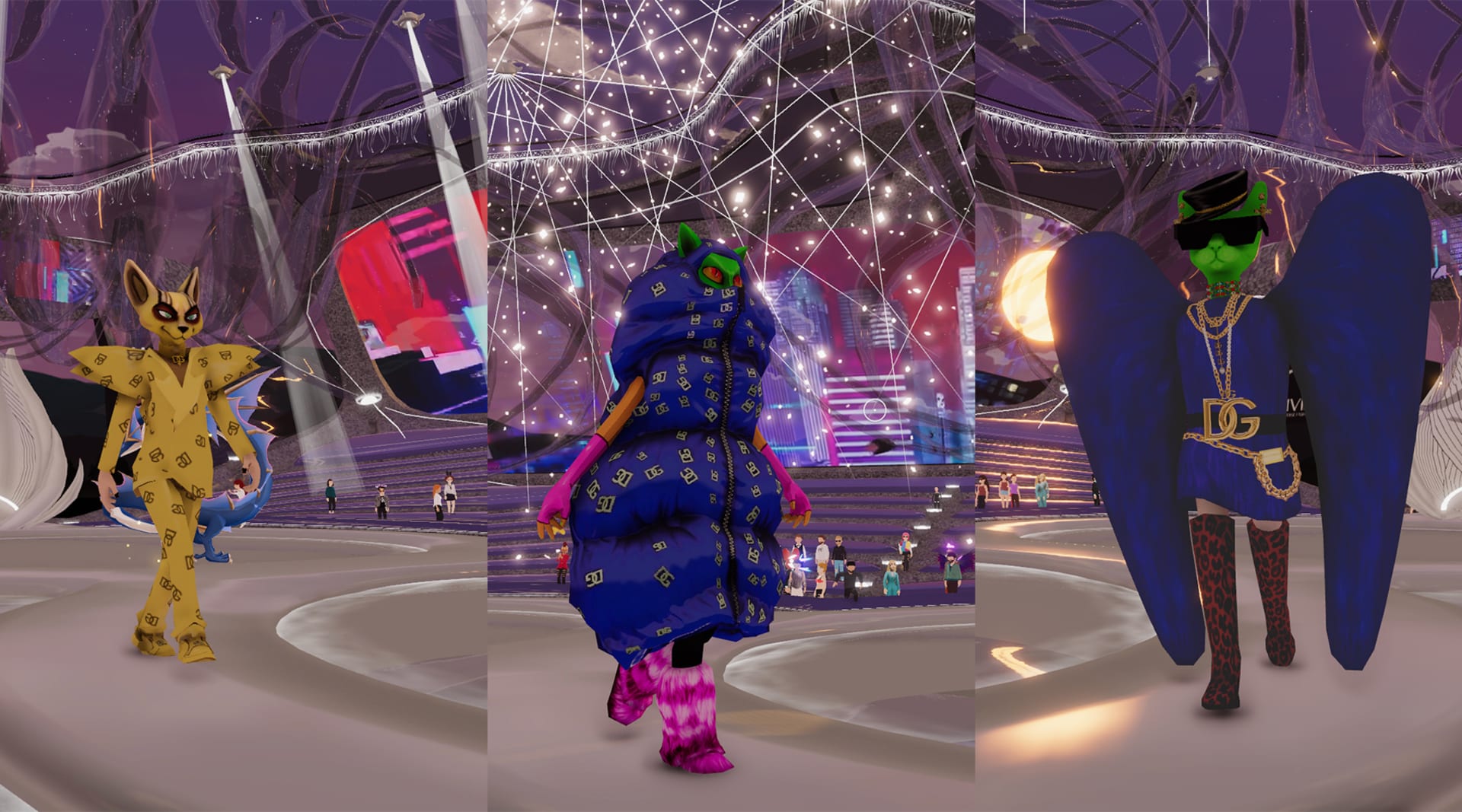High fashion went fully virtual in Decentraland’s Metaverse Fashion Week—a first in the virtual realm. Many big-name brands brought their designs to the metaverse, including Dolce & Gabbana, Tommy Hilfiger, Selfridges, DUNDAS, Forever21, Philipp Plein, DKNY, Karl Lagerfeld, Fred Segal, and even Estee Lauder, the only beauty brand to participate. They mark only a few of more than 60 haute designers, brands and retailers who hosted catwalks and interactive events throughout the long weekend.
We’re highlighting the top five events from the first ever Metaverse Fashion Week (MVFW), hosted by Decentraland.
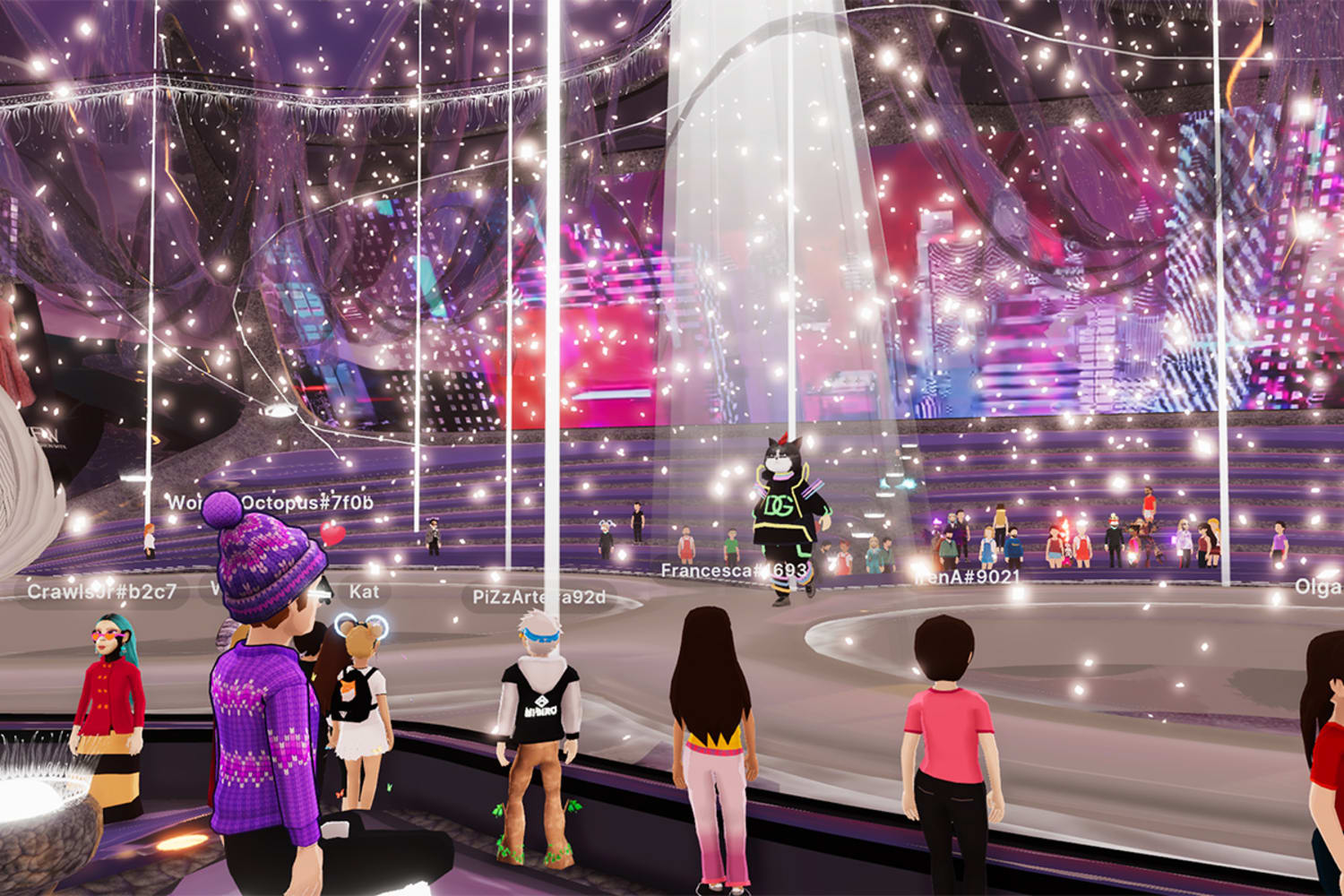
The space
Inspired by Avenue Montaigne in Paris, Decentraland’s Luxury Fashion District opened its virtual doors to the public for its first high-end shopping experience. Many luxury brands, such as Dolce & Gabbana, DUNDAS, and Frank Muller made their Web3 debut via the district’s branded catwalks throughout the weekend, and made up the daily runway shows matriculated by luxury fashion brands and digital artist collaborations.
Physical storefronts that went virtual
Selfridges hosted an exhibition of twelve NFT dresses by Paco Rabanne in a digital replica of the real life exhibition at the retailer’s storefront in London. Without selling any digital or physical items, Selfridges participated as a way to test innovative new applications for this evolving Web3 technology. “This is how we test and learn and decide in the long-term what works for our brand and our customers,” creative director Sebastian Manes told Forbes.
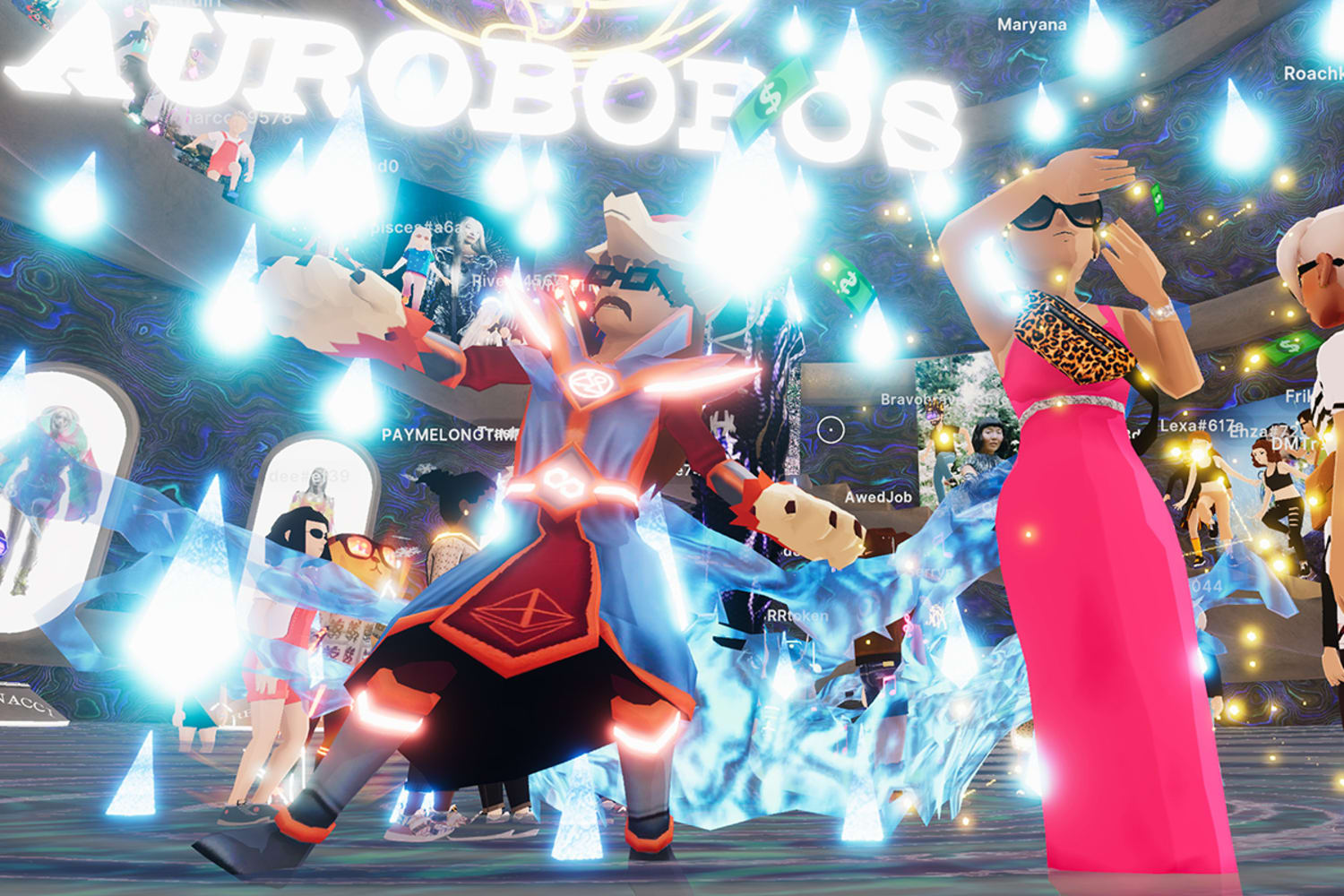
Live events
Pop star Grimes performed live as an avatar dressed by tech couture house AUROBOROS in an exclusive Mystique-inspired bodysuit. The event, which wrapped up the week’s festivities, was hosted in an AUROBOROS virtual art gallery crafted from Damascus steel by the digital architecture firm, Voxel Architects. "Inspired by organic, mystical shapes, it is designed for all guests to enjoy the performance and see the collection up close from a 360-degree angle," AUROBOROS cofounders Alissa Aulbekova and Paula Sello told Dezeen.
Interaction and incentives
Attendees kept an eye out for Sophia the Robot: the avatar who flaunted exclusive Wearables throughout the weekend’s events. Participants were told that the humanoid was wandering Decentraland wearing high-fashion outfits. By taking a virtual selfie with her, guests were entered to win an NFT giveaway sponsored by Percy Lau and Hanson Robotics.
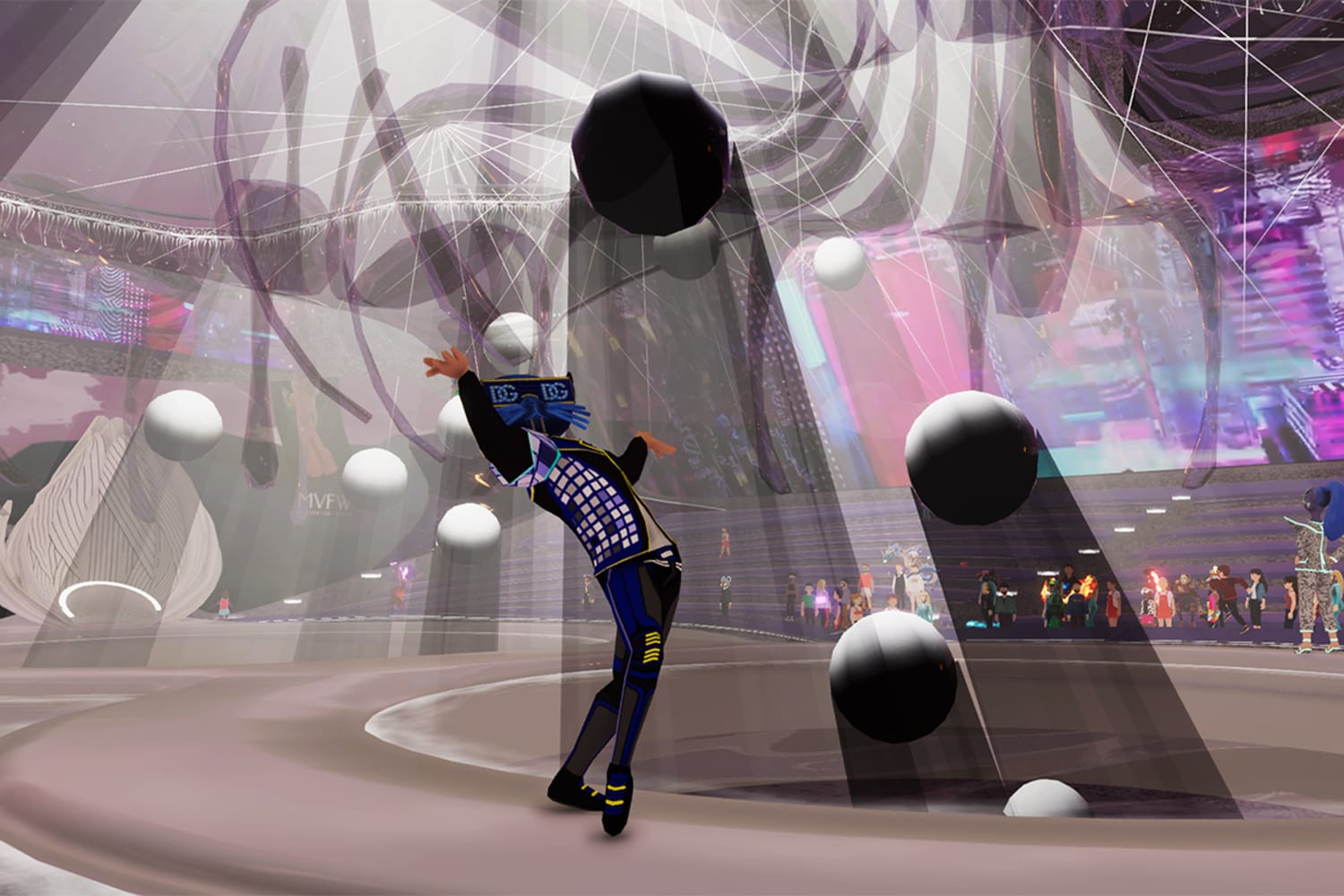
Avatar upgrades
Decentraland introduced never-before-seen NFT emotes at the fashion week: pre-set, posed expressions for your avatar to utilize on and off the catwalk. After attendees completed a task, an NFT emote appeared in the user’s virtual backpack, ready to flaunt on the nearest fashion catwalk as a new and unique way to perform and engage through their avatars on the platform. Three different emotes of varying rarity were available to win on a first-come, first-serve basis, and could be traded in the platform’s Marketplace throughout the weekend.
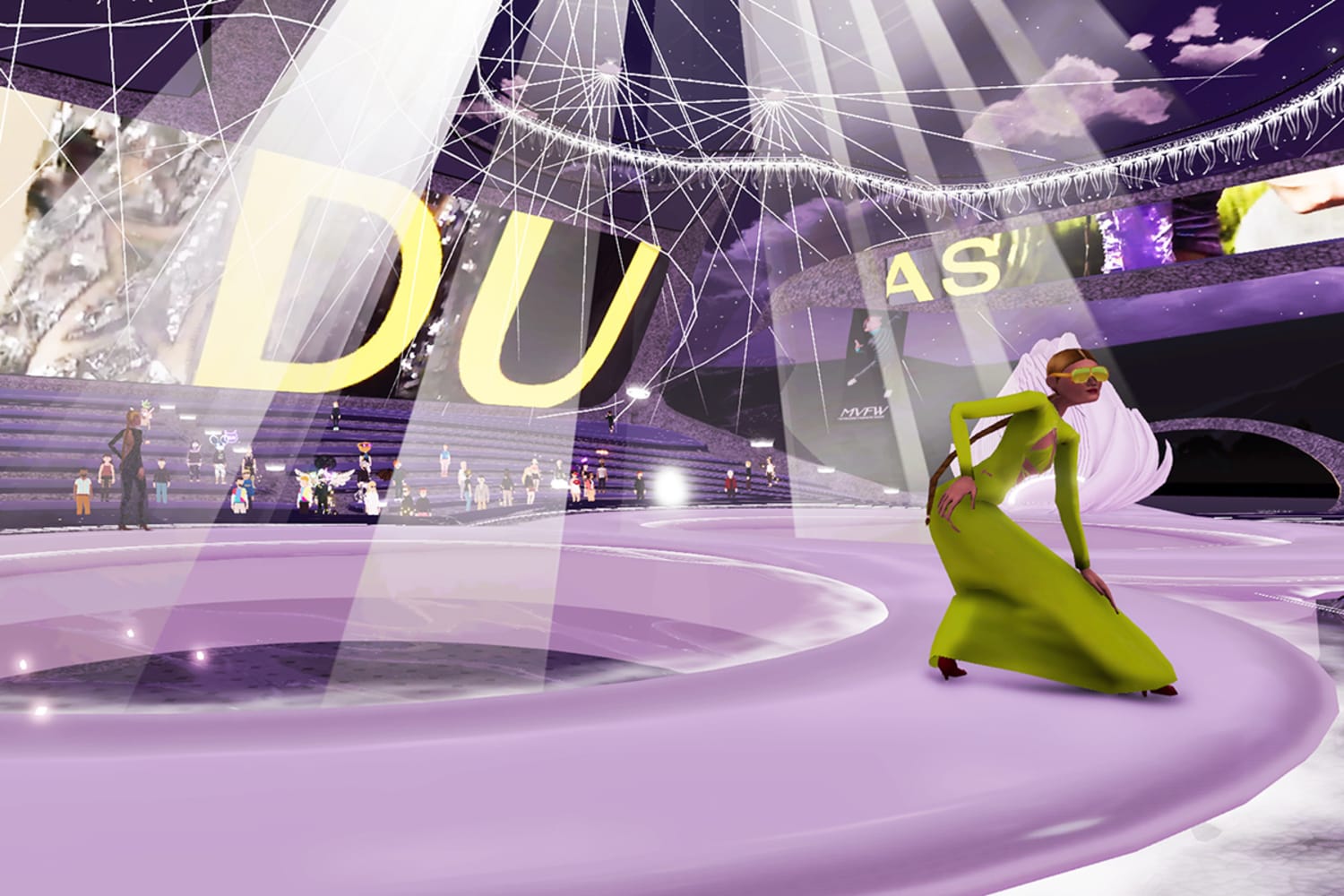
These 60-plus fashion brands embraced the metaverse during MVFW, experimenting with new forms of virtual engagement. "Moving away from the classic catwalk that no longer feels relevant, particularly in a virtual world, we are showcasing our space as a community launch for a more personal approach to our audience and collectors," AUROBOROS’s Aulbekova told Dezeen.
Metaverse Fashion Week set a new standard for luxury, fashion and consumer engagement for future liminal events. David Cash, who moderated the opening panel, spoke to the way digital fashion allows participants to express themselves and their creativity via avatars: “We’ve sought to present fashion in every form possible, from runway shows to retail experiences, fashion presented as art, film, photography, and even fashion presented in ways that extend beyond the confines of reality—as, in the metaverse, anything is possible.”
Main image from the Dolce & Gabbana catwalk, courtesy of Decentraland.
Please provide your contact information to continue.
Related Content
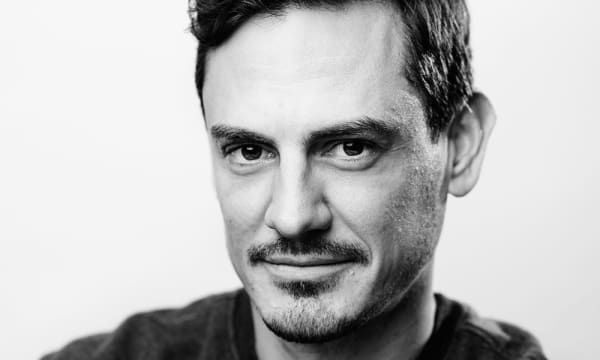
Kerry Murphy, founder and CEO, The Fabricant

